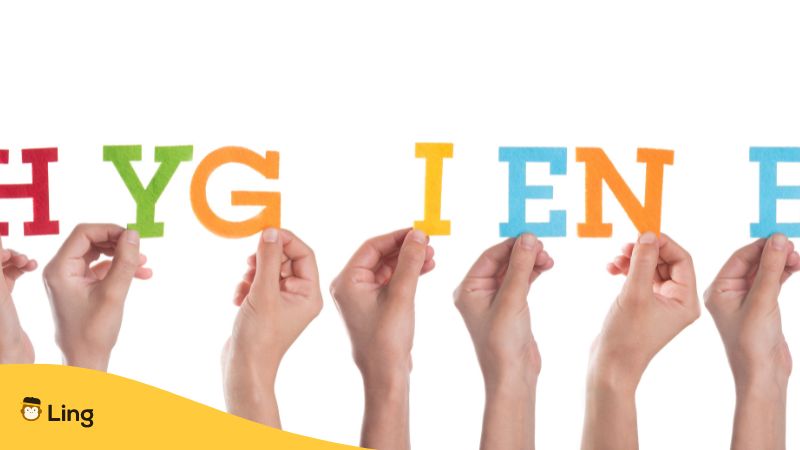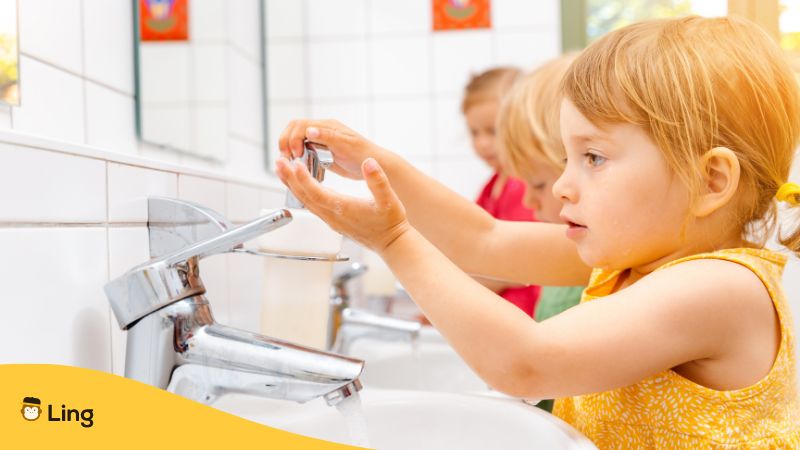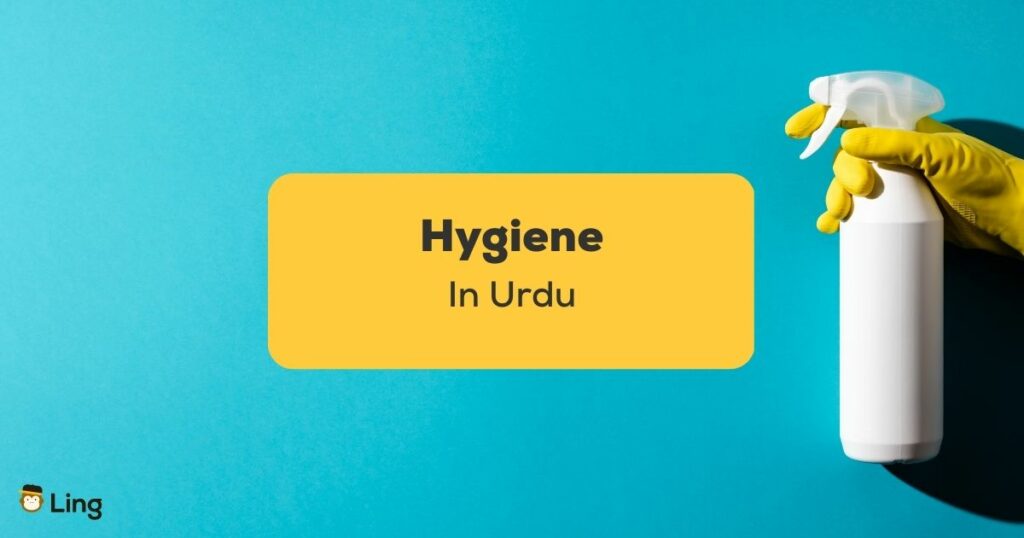If you are planning to travel to Pakistan, learning terms related to hygiene in Urdu is essential to maintain good health and preventing the spread of disease. In the Urdu language, hygiene is called حفظان صحت Hifzan Sehat, and by understanding the vocabulary related to hygiene, you can communicate your needs effectively and take care of your health while traveling. Let’s get to know more about this in today’s post.
Traveling to Pakistan was one of the most memorable experiences of my life. From the bustling cities to the stunning natural beauty, every moment was filled with excitement and adventure. One of my favorite memories was visiting the ancient city of Taxila, a UNESCO World Heritage site that dates back to the 6th century BCE. Walking through the ruins and learning about the history of the area was truly awe-inspiring.
But it wasn’t just the sights that made the trip so special – it was the people. Everywhere we went, we were greeted with warmth and hospitality that left a lasting impression. From trying delicious street food to participating in traditional dance performances, we were welcomed into the culture with open arms. One of the biggest things they taught me was about their hygienic practices.
In Pakistan, washing hands is seen as an important aspect of the culture. Whether trying new foods or interacting with locals, it was crucial to wash my hands frequently to prevent the spread of disease. Want to learn more about this topic? Let’s go over the sections below!

Hygienic Practices In Pakistan
While for some of us, access to (صاف or Saaf ) clean water and restrooms is a given, this is not the case in many areas of Pakistan, particularly in rural communities. The lack of basic sanitation facilities and clean drinking water is a significant cause of diseases and other health hazards. Additionally, due to limited electricity and resources, it is challenging to maintain proper food storage practices, leading to food contamination and further health risks.
Despite these challenges, there have been positive initiatives to promote hygiene practices in Pakistan, particularly in the area of hand hygiene, which has become even more critical during the ongoing pandemic. These initiatives, which are part of اصول ا صحت or Usool e Sehat, aim to raise awareness about proper hygiene practices and improve access to basic sanitation facilities and clean drinking water.
Here are some initiatives that are currently placed as Usool e Sehat.
- Engage communities in rapid behavior change related to hand hygiene
- Construct and distribute facilities for hygiene in public settings
- Increase the nation’s investment in hygiene
- Fill gaps in the supply of hand hygiene products
- Engage political leadership to introduce hand hygiene as everyone’s responsibility for a healthy population

Words Related To Hygiene In Urdu
Want to communicate with the locals better? Here are the terminologies you can use in Urdu.
| English Language | Urdu Meaning | Pronunciation |
| Health | صحت | Sehat |
| Hygiene | حفظان صحت | Hifzan Sehat |
| Sanitation | صفائی | Safai |
| Cleanliness | صفائی | Safai |
| Disinfectant | جراثیم کش | Jaraseenkash |
| Hand sanitizer | ہینڈ سینیٹائزر | Haned Sanitaijer |
| Toilet | بیت الخلاء | Bikal khala |
| Allergies | الرجی | Allargy |
| Medicine | دوائی | Dawai |
| Wash | دھونا | Dhona |
| Soap | صابن | Saaban |
| Nutrition | غذائیت | Kizayat |
| Culture | ثقافت | Safafar |
| Safety | حفاظت | Hifazat |
| Care | دیکھ بھال | Dekbhal |
| Food | کھانا | Khana |
| Laundry | لانڈری | Laandari |
| Environment | ماحولیات | Maholiyat |
| Drinking water | پینے کا پانی | Peene ka pani |
| Bathing | غسل کرنا | Gusal karna |
| Wellbeing | خیریت | Khairiyat |
| Precaution | احتیاط | Itiyat |
| Cleaning | صفائی | Safai |
| Ablution | وضو | Wazu |
| Cold | ٹھنڈا۔ | Thanda |
| Prevention | روک تھام | Rog tham |
| Habit | عادت | Adaat |
| Guideline | گائیڈ لائن | Gaid lain |
| Malnutrition | غذائیت | Kizayat |
| Health insurance | صحت کا بیمہ | Sehat ka beema |
| Diarrhea | اسہال | Isshal |
| Fever | بخار | Bokhaar |
| Headache | سر درد | Saar darad |
| Personal hygiene | ذاتی حفظان صحت | Zaati hifzan sehat |
| Symptoms | علامات | Alamat |
| Vaccine | ویکسین | Wakseen |
| Pharmacy | فارمیسی | Farmeysi |
| Clinic | کلینک | Kalinik |
| Hospital | ہسپتال | Haspatal |
Is It Safe To Travel In Pakistan?
As a traveler, I understand that health is a major concern for tourists, especially during the ongoing COVID-19 pandemic. Pakistan, like many other countries, has implemented several measures to prevent the spread of the virus. These measures include the mandatory wearing of face masks in public places, social distancing requirements, and restrictions on public gatherings. It’s important for tourists to comply with these measures to protect themselves and others.
In addition to COVID-19, tourists should also take precautions to protect themselves from other health risks in Pakistan. These may include water-borne illnesses, mosquito-borne diseases, and altitude sickness in certain mountainous regions. It’s important to drink only bottled water, use insect repellent, and take necessary medication if traveling to high-altitude areas.
Here are some tips on what to prepare to maintain good hygiene while traveling in Pakistan:
- Hand sanitizer: It’s always a good idea to carry a small bottle of hand sanitizer with you, especially when you’re traveling in public spaces or using public transportation.
- Face masks: As mentioned earlier, face masks are mandatory in public spaces in Pakistan. Be sure to bring enough masks for your entire trip and dispose of used masks properly.
- Tissues: Tissues can be useful for a variety of purposes, such as wiping your hands or face, covering your nose when sneezing, or using makeshift toilet paper in public restrooms.
- Disinfectant wipes: Disinfectant wipes can be used to clean surfaces such as doorknobs, handles, and countertops in your hotel room or other accommodations.
- Water bottle: While tap water in Pakistan is generally not safe to drink, it’s still important to stay hydrated during your trip. Bring a reusable water bottle and fill it up with purified or bottled water.
- Toiletries: Bring your own toiletries, including soap, shampoo, toothpaste, and a toothbrush, to avoid using communal toiletries that may not be properly sanitized.
- Sunscreen: If you’re planning to spend a lot of time outdoors, be sure to bring sunscreen to protect your skin from the sun’s harmful UV rays.
Learn Hygiene In Urdu With Ling

Are you planning to travel to Pakistan but concerned about language barriers when it comes to understanding hygiene and sanitation practices? Fret not, as the Ling app has got you covered! With its advanced features, you can access in-depth lessons that cover everything from proper handwashing to food safety.
But wait, there’s more! The Ling app also offers interactive quizzes, cultural notes, flashcards, and writing exercises to help you improve your Urdu language skills. And the best part? You can choose your language level – from beginner to advanced – and learn at your own pace! Try the Ling app to learn Urdu today by downloading it from the Google Play Store or the Apple Store now!



































































